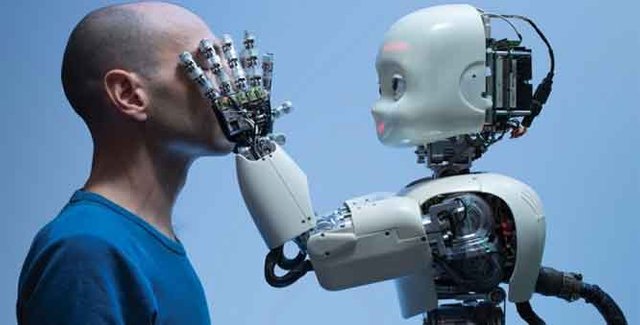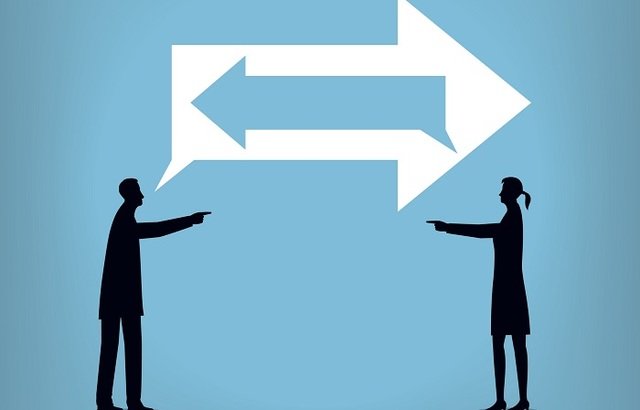And So It Begins: Technology is Changing Us
Technology is changing us - no doubt about it in my mind.

Some of these changes are positive and some not so much. Today, I was reading a medical news story from Reuters. This particular piece was discussing the state of mental health in Europe, specifically how best to initially diagnose someone with a mental illness.
A new internet software program is being used in the Netherlands to conduct initial diagnostic interviews, without a clinician present. Proponents of this program believe that people will be more truthful due to the supposed privacy.
Also, they claim that the results of the electronic assessment system are as valid as a face to face clinical interview. The news story from Reuters Health can be found here if you want to read it in its entirety.
--

Now don’t get me wrong, I’m not a Luddite. I use technology all the time when I’m using various behavioral therapy techniques with people, however, we need to be careful to not allow a tool to replace the tool user because technology is changing us and the way we think, feel and react.
Recently, I bought some college lecture CDs on effective communication skills (it’s always good to review the basics every so often). The lectures reminded me how so much of human communication (the vast majority in fact) is transmitted through body language. For instance, several times while working with people, I have asked them, “how are you feeling?”
The response to this question sometimes is a somber, deadpan-faced (what we in counseling would call ‘flat affect’) “okay.” Now, folks, “okay” can mean anything from “life is pretty good” to “I’ve been considering suicide lately.”
--

As a clinician, body language can tell me what “okay” really means. What’s more, is that even after completing this online questionnaire, the respondent usually does not see a mental health clinician in person, the next phase is normally conducted by telephone.
A mental health specialist will consult with the respondents about their answers to the assessment, again, missing out on all of that critical information revealed via body language (that being said, I have also witnessed medical professionals in the past that merely read a list of questions and never once look up at the person being interviewed, as the clinician ticks off the answers).
Unfortunately, due to the lack of mental health specialists around the world, tools such as this are going to become more commonplace. As I said earlier, I’m all for technology, when it is used as a tool to enhance counseling. Such a tool might be useful for educational purposes in my mind but NOT for treatment purposes.
What do you think, would you prefer an online assessment or one done face to face with a professional? Do you think technology is changing us?

First, every psychologist and a psychotherapist is supposed to be the best measurement instrument him/herself. That is: the most objective, sensitive, valid, and reliable is a well trained, ethical, and dedicated psychologist or psychotherapist him/herself. Beside, there is DSM IV, where you can find something like windigo sickness- this most probably isn't included into this electronic assessment system. Why I find this important? Because of immigration which is bringing voodoo and other occult practices domestic and familiar from where they come, also because of the article found in The Atlantic Monthly which speaks of the witchcraft children in Africa (a horrible narrative of children whose parents or family members went sick and were abused to be possessed by witchcraft) - I can't find it now, but this one should suffice: https://www.nytimes.com/2014/07/05/opinion/the-persecution-of-witches-21st-century-style.html
When people move in such masses then they bring with them what they believe in and also their spiritual guardians if they have them.
Also because a therapist from USA has proposed to include sensitivity and affectedness by frequencies modifiers to be included into DSM IV.
I just read/reviewed two novels that touch on these issues:
"The Bone Curse" by Carrie Ruben. African Vodun morphed into "Vodou" --not Voodoo-- when slaves were transplanted to the 1700s French colony that became Haiti;
"Then She Was Born" by Cristiano Gentili
"This book can inspire racial healing, not only among the blacks in Africa – where albinism is still not always understood as a genetic difference – but wherever in the world we fear those who are different than us."--https://beccachopra.com/2017/12/09/helpafricanalbinos-then-she-was-born-bookreview/ … via @BeccaChopra
#HelpAfricanAlbinos
Thanks for correction, but I doubt this might change the practices. In my comment, I reffer to a ritual murder in Sweden that was in the news. Also in the news was healing of a woman in a coma, where a ring was sent from Africa to put on the woman's finger and then she woke up - but those African people there respected that white woman. The woman was owner of a resort in Africa who worked together with her African employees, who obvioulsy liked and respected her.
I think we all prefer face to face. However online assessment provides a cheaper solution. The choice is an economic one.
True, it should be interesting to see how further advancements in tech will shrink the disconnect over time.